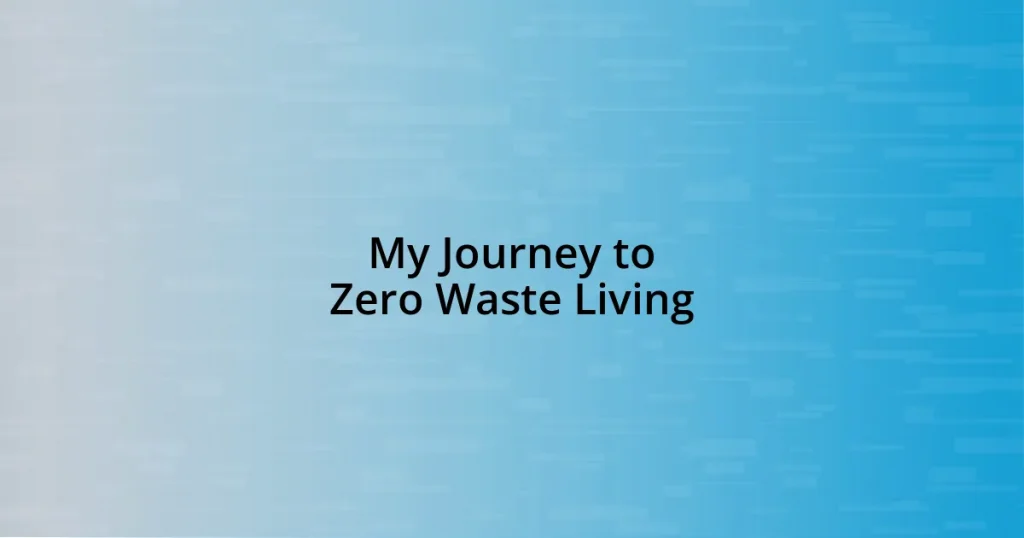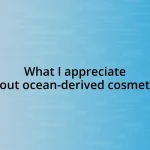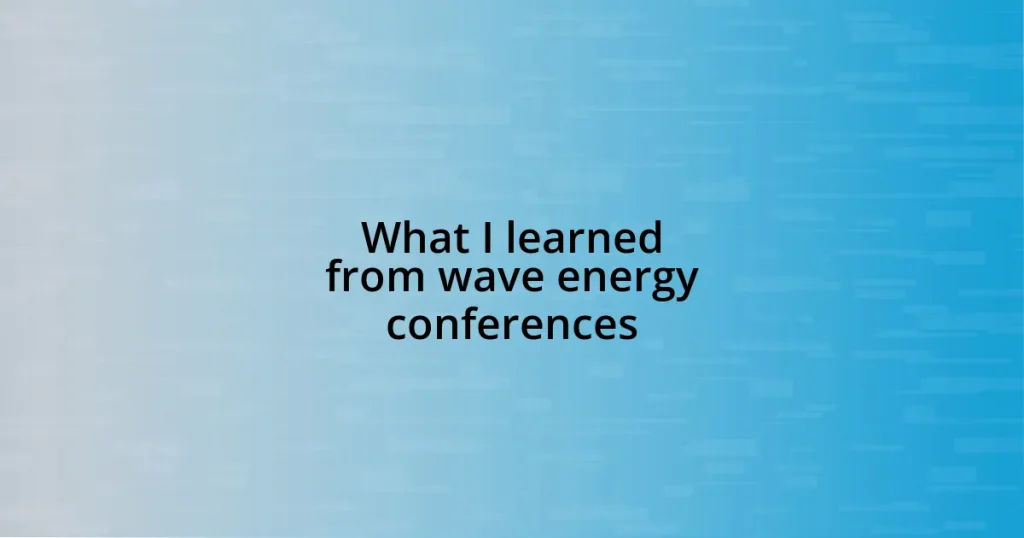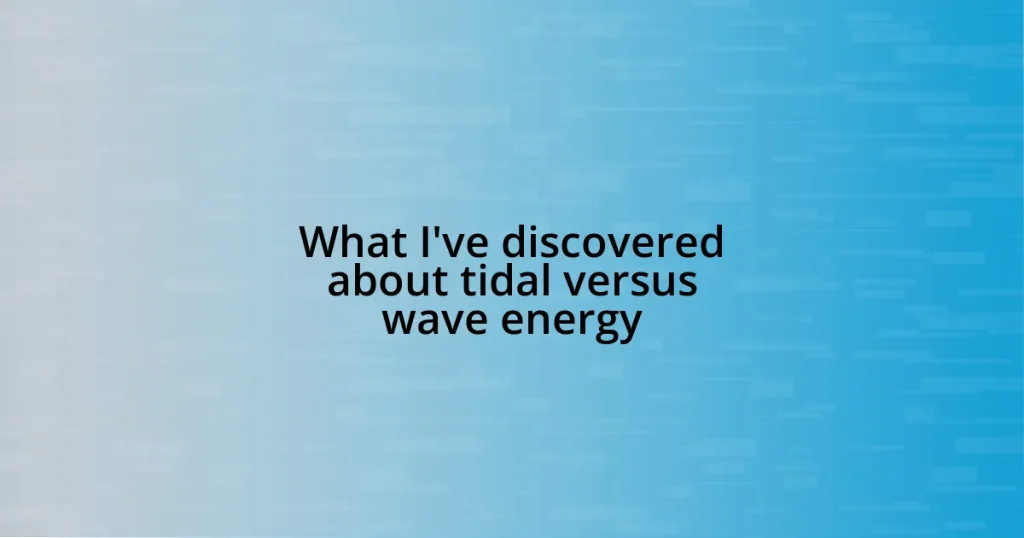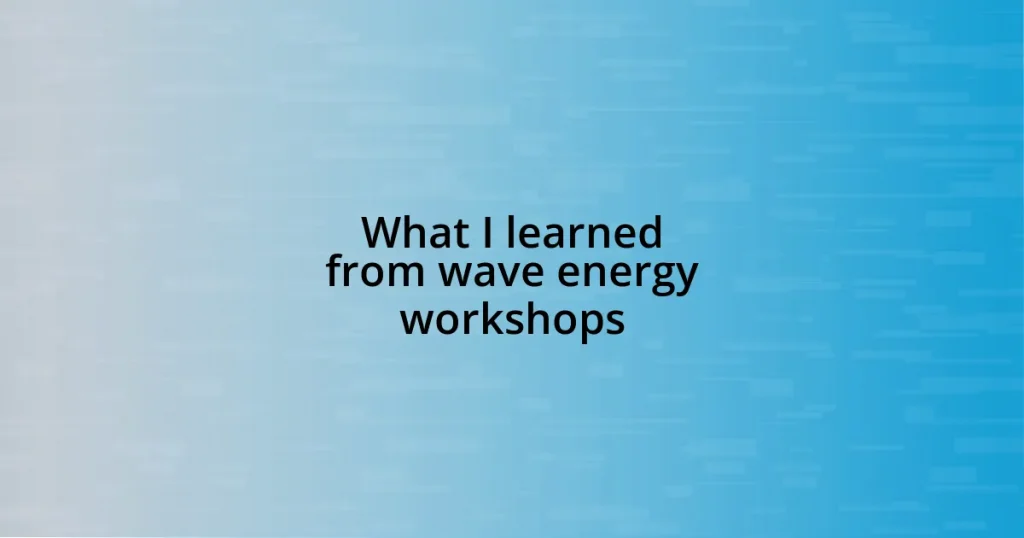Key takeaways:
- Zero waste living emphasizes reducing daily waste and encourages the use of reusable alternatives over disposable products.
- Assessing current waste habits reveals areas for improvement and can motivate meaningful lifestyle changes.
- Small actions, like switching to reusable bags or meal planning, can significantly reduce waste and foster a sense of accomplishment.
- Community support and mindfulness are essential in maintaining a sustainable zero waste lifestyle.
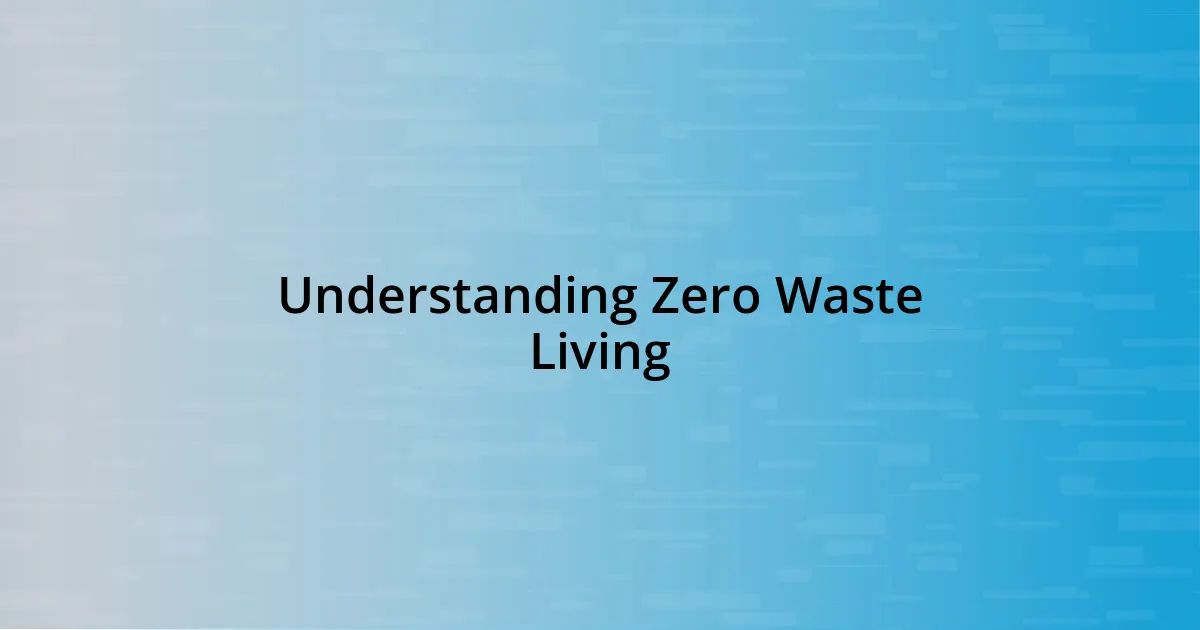
Understanding Zero Waste Living
Zero waste living is fundamentally about reducing the waste we produce on a daily basis. I remember the first time I consciously started to assess my trash; it was startling to see how much I threw away in just one week. Have you ever paused to consider the lasting impact of our consumption habits? It’s an eye-opening experience.
This lifestyle challenges us to rethink our relationship with resources—from the products we buy to the packaging that comes with them. I once felt overwhelmed by the sheer volume of items labeled as disposable, but then I found joy in choosing reusable alternatives. Isn’t it empowering to realize that small changes can lead to significant shifts in our environmental footprint?
Understanding zero waste living also means embracing creativity in repurposing items rather than discarding them. One of my favorite projects was turning old t-shirts into reusable shopping bags; it felt rewarding to give new life to something that might have ended up in a landfill. Do you see possibilities around your home waiting to be transformed? That’s the essence of zero waste—finding value everywhere, even in what we once deemed useless.
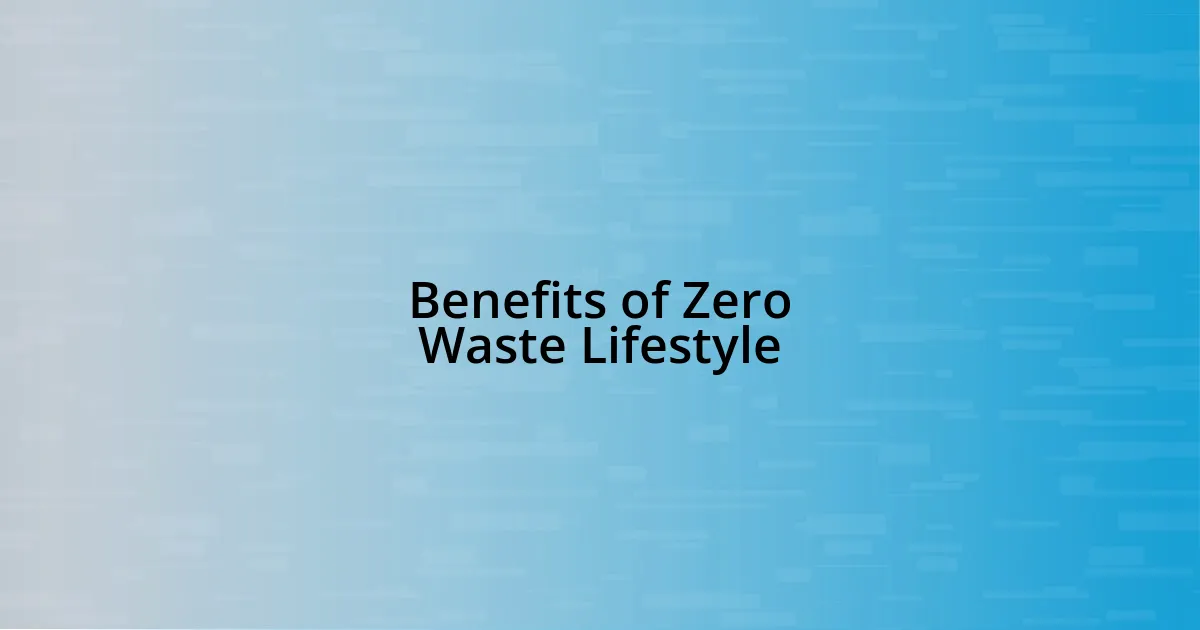
Benefits of Zero Waste Lifestyle
Moving toward a zero waste lifestyle offers incredible benefits, both personally and environmentally. For me, one of the most noticeable impacts has been the reduction in monthly expenses. I began to save money by making my own cleaning products and using reusable containers instead of constantly buying new ones. Have you ever calculated how much those disposable items cost over time? It can be shocking!
Emotionally, adopting this lifestyle instilled a sense of purpose and fulfillment in my daily choices. I remember the first time I collected my waste for a week; it fit neatly into a single mason jar. The pride I felt was indescribable—a tangible reminder of my efforts to make a difference. Every step I take not only benefits my surroundings but also fuels my motivation to inspire others on this journey.
In terms of health, zero waste living often leads to better dietary choices. I found that shopping in bulk and avoiding pre-packaged foods led to a profound shift in what I bought and consumed. Fresh, organic produce became the staples in my kitchen. Have you noticed how often convenience overrides nutrition? This lifestyle encourages us to prioritize wholesome ingredients, indirectly benefiting our wellbeing.
| Benefit | Description |
|---|---|
| Financial Savings | Reduces monthly spending through DIY products and reusable items. |
| Emotional Fulfillment | Offers a sense of accomplishment and purpose when reducing waste. |
| Healthier Choices | Encourages consumption of fresh, whole foods over processed items. |
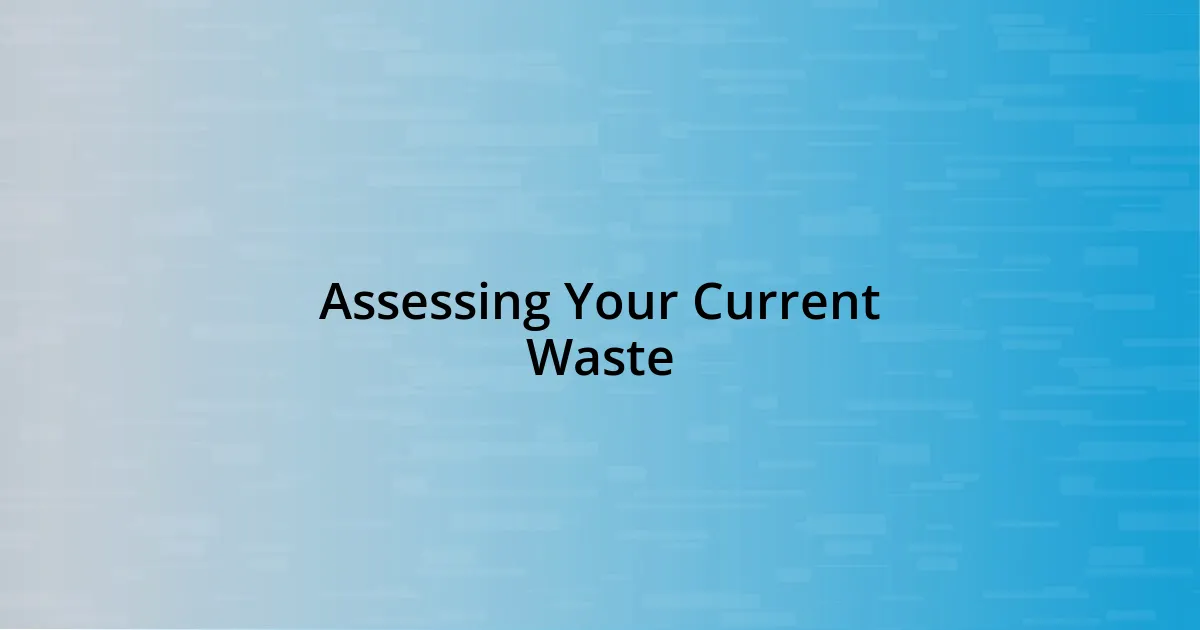
Assessing Your Current Waste
Assessing your current waste is an essential step in the journey toward zero waste living. I still recall my first week of tracking everything I discarded. It was almost like holding up a mirror to my habits—each piece of trash told a story of mindless consumption. I encourage you to take note of your waste, too. It can be an enlightening experience.
Here are a few things to consider when assessing your waste:
- Categories of Waste: Identify what types of waste you’re generating—food scraps, plastic packaging, paper, etc.
- Frequency: Track how often you dispose of certain items. Are there products you use daily that could potentially be replaced?
- Sources of Waste: Pinpoint where most of your waste originates. Is it from the grocery store, takeout meals, or online shopping?
- Recyclables: Look at how much of your waste can actually be recycled. Are you properly sorting your materials?
- Composting Opportunity: Consider whether you produce organic waste that could be composted instead of thrown away.
As I began to itemize my waste, I discovered surprising habits I had overlooked. For instance, I noticed just how many coffee cups I went through weekly. It hit me hard. If something as simple as my coffee habit was contributing to waste, what else was I missing? This moment of realization sparked a desire to fix those habits and explore better choices. Your assessment can similarly unveil areas ripe for transformation.
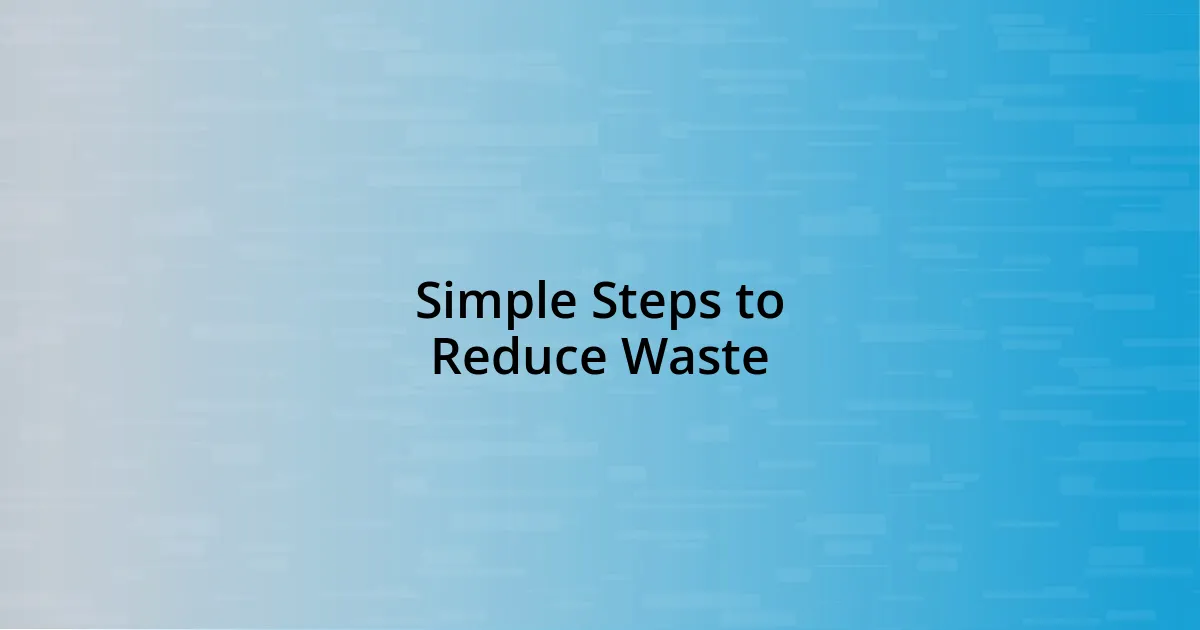
Simple Steps to Reduce Waste
Making small changes can yield significant reductions in waste. One of my first steps was to switch to reusable shopping bags. Initially, I kept forgetting them at home, but as I made it a habit, I felt so proud each time I avoided single-use plastic. Have you ever felt that little thrill when you say no to a plastic bag? It’s empowering!
Another simple yet effective change was to reduce food waste. I began meal planning, which not only kept my fridge organized but also helped me buy just what I needed. I remember one week when everything was used up, and there were no scraps to toss. It felt fantastic to know I wasn’t wasting resources.
Lastly, I started using a compost bin for my kitchen scraps. While it took some adjustment, the idea of turning food waste into nutrient-rich compost transformed my perspective on waste entirely. I now see waste as a resource rather than a burden. Have you tried composting? It’s surprisingly rewarding and can make your garden flourish!
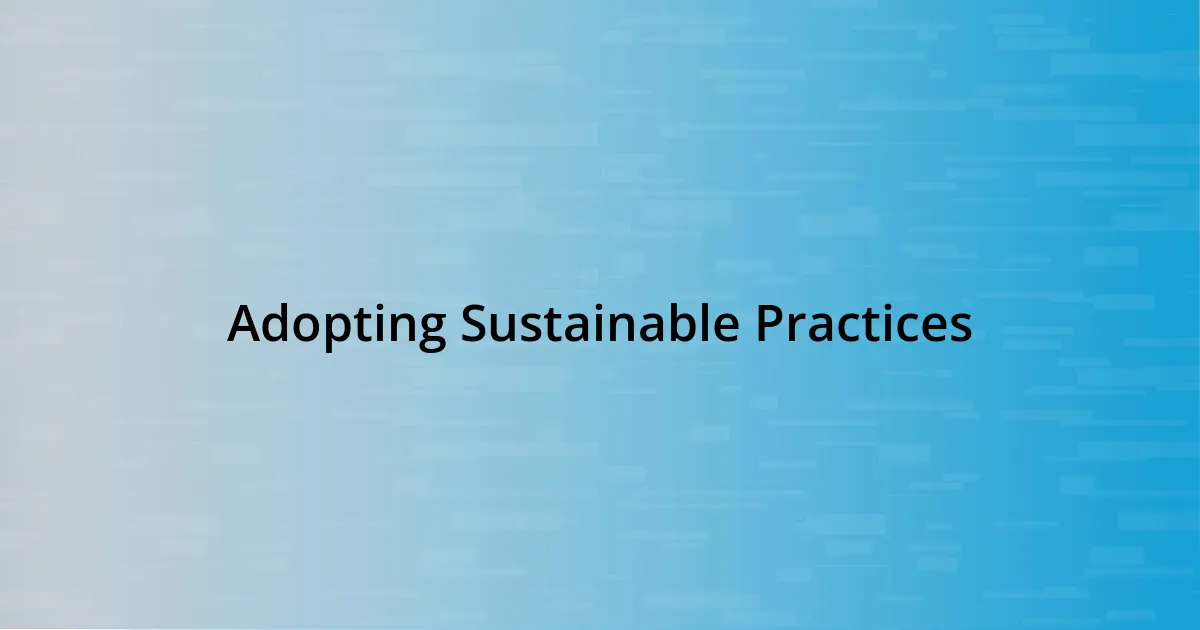
Adopting Sustainable Practices
Adopting sustainable practices is about making conscious choices in our everyday lives. One example from my journey has been swapping out conventional cleaning products for eco-friendly alternatives. The first time I mixed vinegar and baking soda to clean my surfaces, it felt like I was rediscovering an age-old secret. Have you ever felt that rush of satisfaction knowing you’re not only cleaning your space but also protecting the environment?
I also took a hard look at my clothing habits. I used to shop impulsively for trendy pieces, but now I focus on quality over quantity. I remember purchasing a simple, well-made dress that I still wear years later, rather than a closet full of fast fashion that faded and fell apart. It’s funny how trading a shopping spree for a thoughtful purchase can feel so fulfilling, don’t you think?
Lastly, I began to reconsider my energy consumption at home. Switching to LED bulbs and unplugging devices when not in use seemed like small adjustments, but they made a noticeable difference in my electric bill. Sometimes, I think back to that first month when I saw a lower number on the bill. It reminded me that even minor tweaks in our habits can lead to major change! Have you found small shifts in your energy use that made you feel good about yourself?
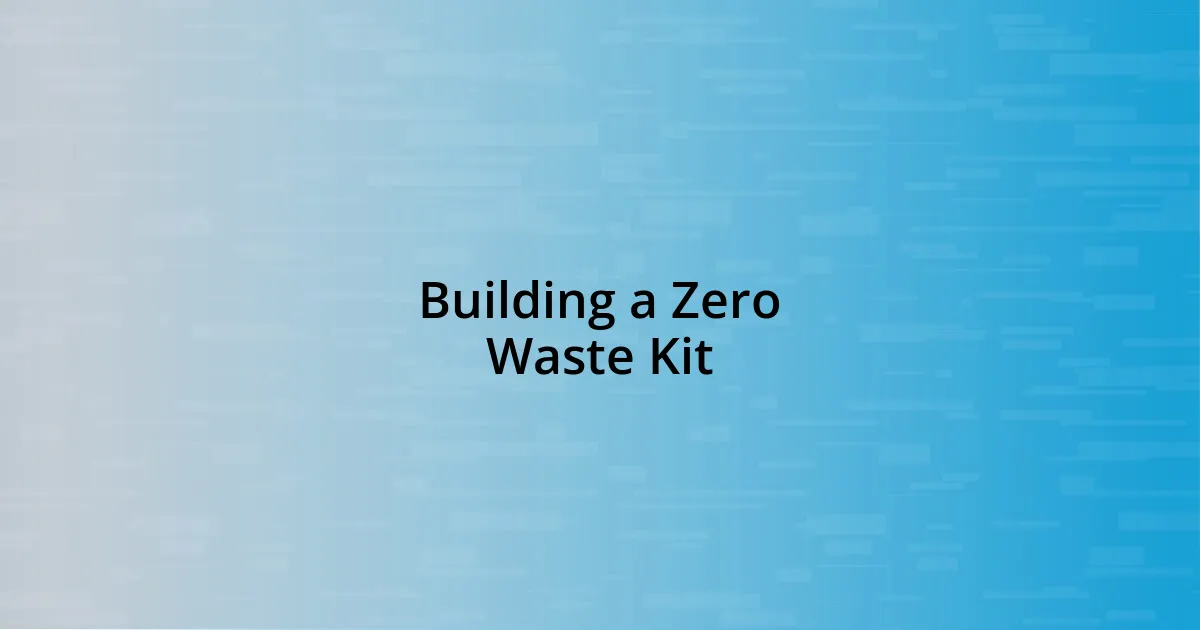
Building a Zero Waste Kit
Creating a zero waste kit has been an exciting part of my journey. I started with the basics: a sturdy reusable water bottle and a set of stainless steel straws. The first time I pulled my straws out at a café, I felt a little surge of pride. It’s like a small but mighty statement against all those single-use plastics, right?
As I expanded my kit, I added silicone food storage bags and beeswax wraps. I vividly recall my first grocery trip using the wraps instead of plastic wrap. The cashier’s raised eyebrows met my grin; it felt liberating to embrace something so sustainable. Have you ever tried to explain to someone why your food looks different? It’s a conversation starter that makes you feel like a small part of a bigger movement.
Before I knew it, my zero waste kit became an essential part of my daily life. I included reusable utensils and a cloth napkin, which I now carry everywhere. There was this one lunch at a park where everyone saw me unpack my kit. They were curious, and I used that moment to share how easy it is to reduce waste. It’s funny how just one positive action can inspire others, don’t you think? Building this kit isn’t just about personal choices; it’s about encouraging a shift in our collective habits.
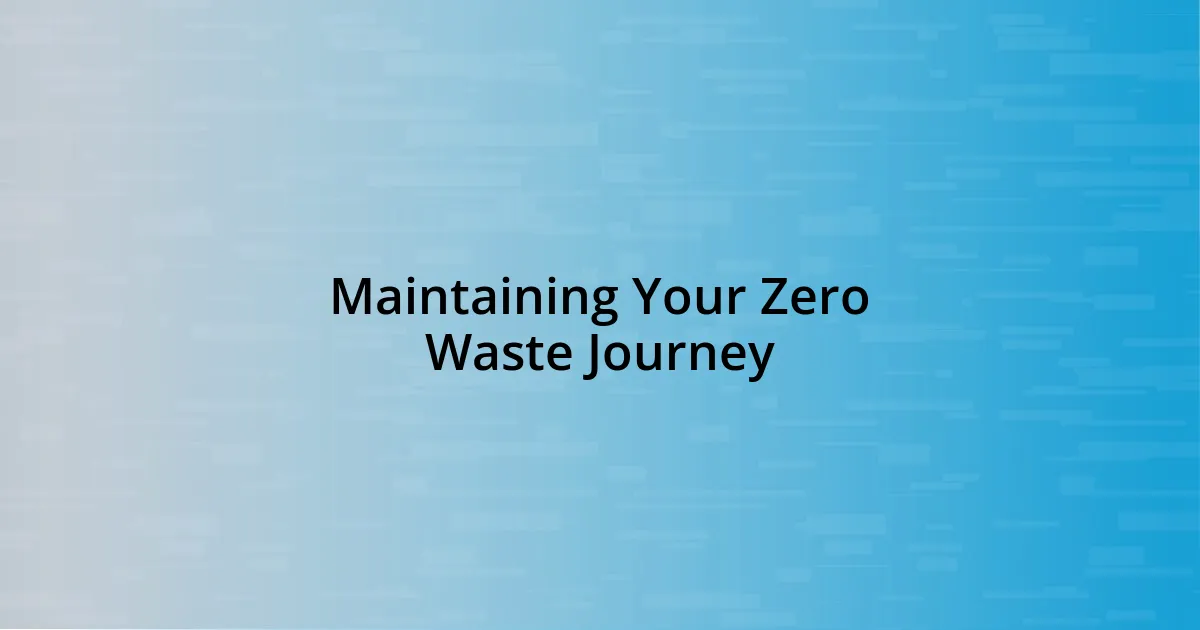
Maintaining Your Zero Waste Journey
Maintaining the momentum of your zero waste journey is an ongoing commitment. I remember facing a day when I slipped up—forgetting my reusable bags at the grocery store. Instead of beating myself up, I embraced it as a learning moment. Have you ever found yourself in a similar situation, perhaps feeling guilty? Instead of guilt, I learned to focus on how I could adjust my habits moving forward, making sure I had a backup bag in my car just in case.
As my journey progressed, I realized that community support plays a significant role in sustaining my efforts. During local meetups, I found like-minded individuals who not only shared their experiences but also provided encouragement on tough days. I often think about that weekend picnic with friends where we all brought zero waste dishes. It made me feel empowered, knowing we were collectively striving for a common goal. Have you ever participated in a community initiative that reignited your passion for sustainable practices?
I also learned to integrate mindfulness into my daily choices. For instance, when I contemplate purchasing something new, I ask myself if I really need it or if it aligns with my zero waste values. It’s surprising how often I can answer no if I pause to reflect. I can recall standing in a store, cold coffee in hand, and realizing that I was just about to buy a new gadget that would have likely ended up in a drawer. Instead, I took a breath and decided to leave it behind. Isn’t it fascinating how such small moments can significantly influence our habits and mindset?











